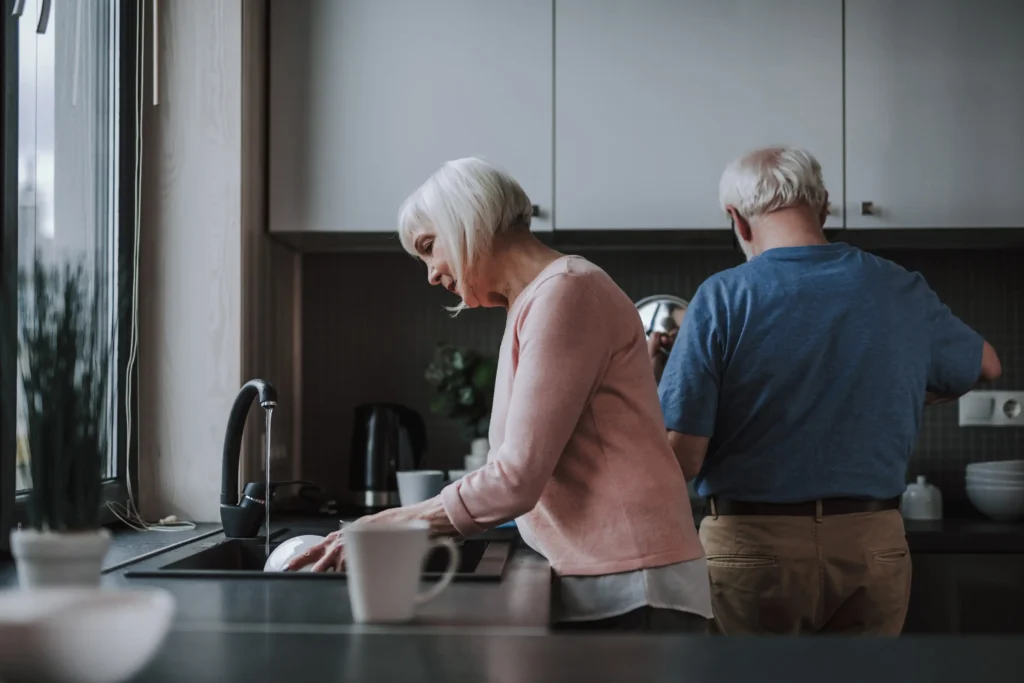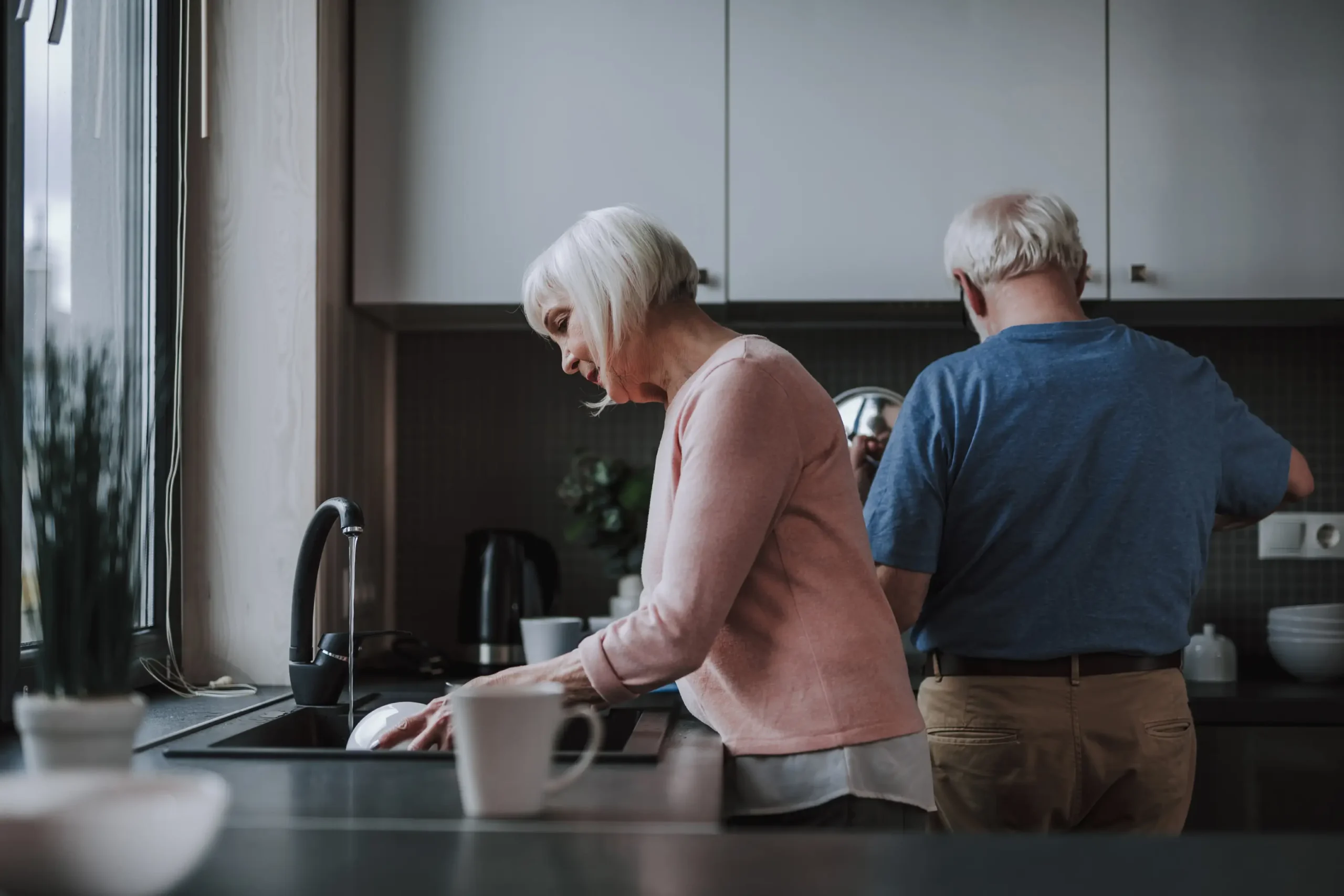Maintaining a clean and orderly house can become more difficult as we get older. The elderly require assistance with house cleaning, which is a crucial but frequently ignored element of senior care.
Many seniors have physical restrictions or health conditions that make it difficult or impossible to do ordinary housekeeping duties alone.
Addressing this requirement not only improves their quality of life but also adds to their general health and safety.
This article looks at the importance of providing cleaning assistance to the elderly, the obstacles they face, and the practical ways to help them live comfortably and safely in their homes.
Challenges of Cleaning For the Elderly

House cleaning for elderly people
Physical Limitations
When strength, flexibility, or mobility are compromised, tasks like bending, reaching, or lifting might become challenging for the seniors. As a result, regular cleaning tasks like vacuuming, mopping, and even basic dusting may become difficult or impossible. Furthermore, jobs that require a ladder or transporting large goods become dangerous as they increase the possibility of mishaps or injuries. For the elderly to live in a clean and safe environment, these constraints frequently call for different cleaning techniques or assistance.
Cognitive Impairments
Age-related cognitive decline and memory loss may make elderly people forget to do housekeeping tasks, raising the possibility of accidents or living in unsanitary circumstances. Furthermore, poor judgment could make it challenging for them to prioritize cleaning tasks or handle cleaning supplies securely. This emphasizes how crucial it is to provide specialized solutions for elders with cognitive impairments to guarantee safe and efficient cleaning procedures.
Loneliness & Isolation
Most seniors who live alone lack social connections necessary to stay motivated and complete home chores. This may make them miss their cleaning schedules, which would then have an impact on their general well-being and living situation. Furthermore, physical restrictions that frequently come with age can make cleaning duties more challenging, worsening feelings of isolation and loneliness.
Importance of a Clean Environment
Older adults tend to be susceptible to illnesses brought on by dust, mold, and pollution because their system’s immunity is compromised. It makes them vulnerable to respiratory problems, infections, and allergies when living in an untidy and unhygienic environment. A clean space promotes safety by minimizing hazards like slips and falls. Apart from physical well-being, a calm and well-structured environment may enhance mental sharpness and psychological ease, improving the general standard of living for senior citizens. Therefore, preserving a clean environment is crucial to protecting senior citizens’ health and well-being.
The Role of Assistance in Cleaning
Physical restrictions or health issues might make normal housekeeping duties difficult for elders. Helping with housekeeping chores like dusting, vacuuming, and mopping keeps things tidy and reduces the risk of hazards like trips and falls caused by clutter or disarray. Additionally, a tidy house relieves stress giving seniors a sense of control, dignity, and improving their mental and emotional well-being.
Cleaning assistance also takes care of hygiene issues, especially in private areas like kitchens and bathrooms where hygiene is essential for good health. Beyond only helping with the chores, supplementing their cleaning promotes social connection and companionship since caregivers or assistants build deep ties with elders during the process. In the end, family members and caregivers who help with cleaning greatly improve the general well-being and security of senior citizens, allowing them to age with dignity and independence.
Empowering Independence
Elderly people should be empowered to clean independently since doing so not only keeps their surroundings neat, but also preserves their dignity and sense of control. They can take pride in their ability to manage their living space and feel self-sufficient when they have the necessary tools, techniques, and help to accomplish cleaning duties on their own. This empowerment fosters mental health and a healthy self-image in addition to physical cleanliness. Seniors who receive individualized cleaning tasks are more likely to be physically active and mentally stimulated, both of which are essential for preserving their general health and sense of independence. It also supports the idea that becoming older does not make you less capable but instead, it encourages creativity and adaptability. In the end, giving older people more autonomy when it comes to cleaning up enhances their feeling of success and purpose, improving their quality of life in the golden years.
Helping older people clean their homes promotes their independence and dignity while also ensuring their physical well-being. One can preserve the values of compassion, solidarity, and their importance within society by acknowledging the struggles of the elderly and providing support. By doing such actions, we not only lessen their responsibilities but also foster empathy and understanding among our communities.

